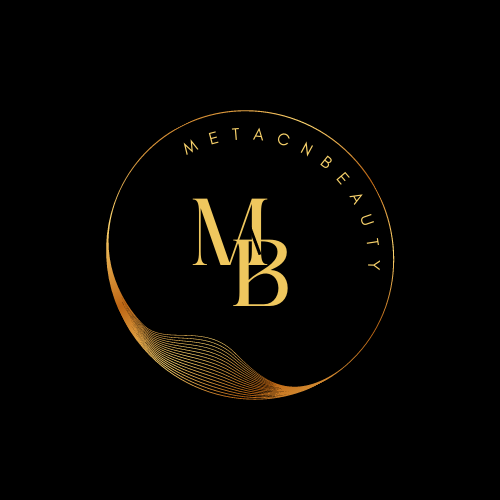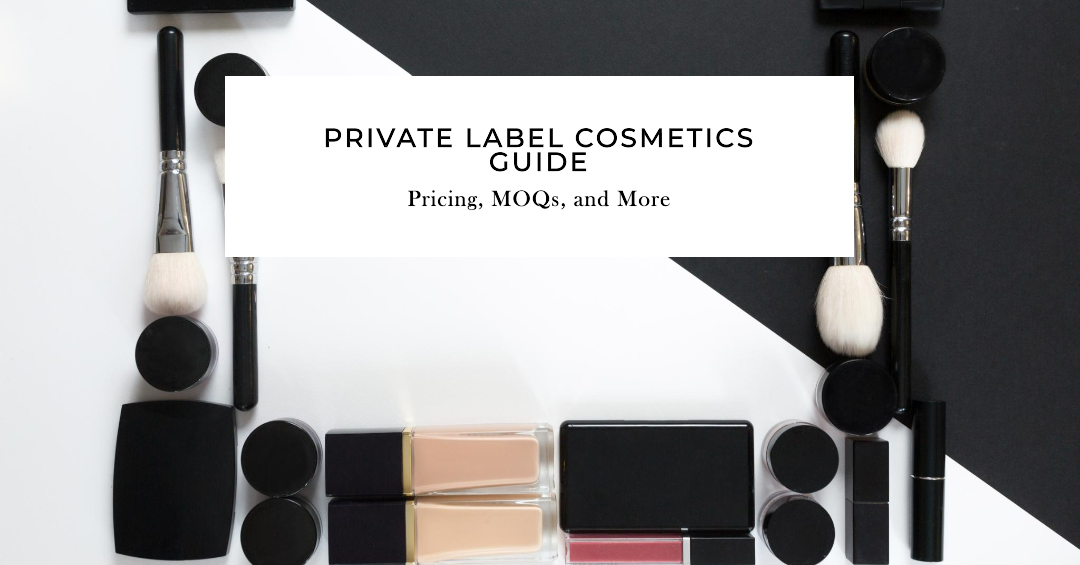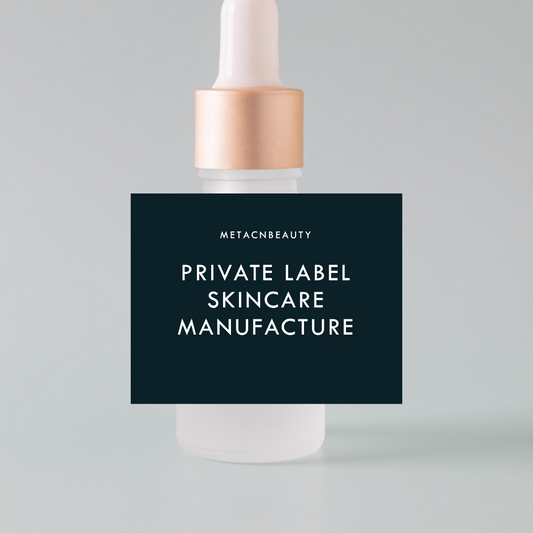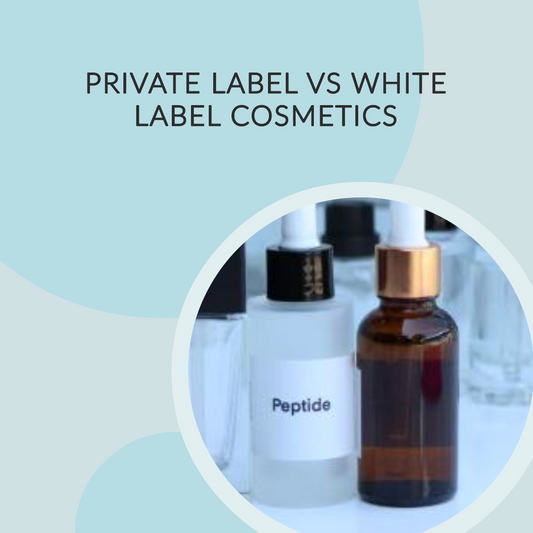Private label cosmetics have become a significant avenue for cosmetic companies, make-up artists, schools, salons, spas, a variety of beauty brands ,etc .to expand their product lines efficiently. These products are designed and produced by one company but sold under another brand's name, offering flexibility in branding and customization. In this guide, we'll delve into what private label cosmetics are, compare them to white label cosmetics, explore minimum order quantities (MOQs), pricing, and outline the advantages and disadvantages of using private label cosmetics.

What Are Private Label Cosmetics?
Private label cosmetics refer to beauty products crafted by one company and marketed under another brand's name. These products can either be pre-made and ready for branding or customized to meet specific requirements. With low MOQs and quick turnaround times, private label cosmetics provide a streamlined way for brands to introduce new products or expand their offerings.
White Label vs. Private Label Cosmetics
The terms white label and private label are often used interchangeably, though they refer to different manufacturing options. White label products are pre-made and ready for branding with minimal customization, primarily limited to adding your logo. Private label products, however, offer more flexibility, including tweaking formulations and packaging, but typically come with higher MOQs.
Types of Private Label Cosmetics and Their MOQs

1. Pre-made Products (White Label Cosmetics): Starting from 50 Units
Private label cosmetics can be broadly categorized into two types, each with distinct MOQs:
These products are pre-manufactured and available for immediate branding. Some manufacturers offer these products with no minimum order quantity, making them accessible for new or small businesses. However, customization is usually limited to labeling or logo, as direct printing on packaging requires equipment set up for large runs, which isn't feasible for small quantities.
Pre-made Products (White Label Cosmetics): Bullet Point and Limitation
- These are ready-to-go products that can be branded with your logo only.
- Customization is limited to adding labels or logos.
- Ideal for small quantities, but printing directly on packaging isn't feasible for small batches.
This limitation exists because direct printing on the packaging requires machinery that isn’t feasible to operate for just a few units. These machines are designed for large runs, so the cost and logistics of setting them up for a small batch don’t make sense. So some manufacturers offer these products with no minimum order quantity, In fact ,its making no sense at all .
2. Customized Products: Starting from 10000 Units
For brands looking to have a unique product, manufacturers offer customized private label cosmetics. These products are made to order, allowing changes to both the packaging and sometimes the formulation. Due to the bespoke nature of these products, the MOQs are higher, typically starting at 1000 units, providing a more professional appearance with direct packaging printing.
Products Made for You Products (Private Label Cosmetics): Bullet Point and Achievement
- These products offer more customization in packaging and sometimes the formula.
- Requires larger MOQs (usually at least 10000 units).
- Allows for direct printing on packaging, providing a professional look.
With this approach, you have the option to print directly on the packaging, giving your products a sleek, professional look right from the start.
Private Label Cosmetics Pricing

|
Product
|
50 MOQ Price Range
|
10000 MOQ Price Range
|
|---|---|---|
|
Lipstick
|
$7.00 - $10.00
|
$2.00 - $3.50
|
|
Nail Polish
|
$6.00 - $8.00
|
$1.50 - $3.00
|
|
Mascara
|
$8.00 - $10.00
|
$2.50 - $4.00
|
|
Moisturizer
|
$18.00 - $25.00
|
$5.50 - $8.00
|
|
Powder
|
$9.00 - $12.00
|
$3.00 - $4.50
|
|
Face Brushes
|
$10.00 - $12.00
|
$1.50 - $3.00
|
|
Eyeliner
|
$5.00 - $7.50
|
$1.50 - $2.50
|
|
Foundation
|
$10.00 - $12.00
|
$4.00 - $5.50
|
|
Lipgloss
|
$6.00 - $8.00
|
$2.00 - $3.50
|
|
Shampoo
|
$15.00 - $18.00
|
$5.00 - $7.00
|
Advantages of Private Label Cosmetics
1. Quick Market Entry
Private label cosmetics allow brands to enter the market swiftly. Without the need to develop formulations or packaging from scratch, brands can start selling within weeks. This is ideal for businesses looking to capitalize on trends or quickly expand their product range.
2. Lower Initial Investment
Private label cosmetics require lower initial investments due to small MOQs. This is particularly advantageous for startups or small businesses that want to test the market without committing to large production runs.
3. Customizable Packaging
In the beauty industry, packaging plays a crucial role in attracting customers. Private label cosmetics offer the ability to customize packaging, enhancing the product's visual appeal and helping it stand out on the shelves. Pre-made products can be labeled with your logo, while customized products allow for direct printing and more comprehensive packaging design.
Disadvantages of Private Label Cosmetics
1. Limited Control Over Formulation
Private label cosmetics offer limited control over the product formulation. Brands may not be able to modify scents, textures, or ingredients, which can be a drawback if specific customizations are needed.
2. Restricted Packaging Options
While customization is a significant benefit, it is often limited for pre-made products. This can make it challenging to differentiate your brand from others using similar packaging.
3. Higher Unit Costs
Although the initial investment is lower, the unit cost for private label cosmetics can be higher, especially for small orders. This can impact profit margins, making it essential to carefully consider pricing strategies.
Step-by-Step Guide to Launching Private Label Cosmetics

1. Choose the Right Manufacturer
Selecting the right manufacturer is crucial. Consider factors such as quality, unit price, lead time, delivery time, MOQs, communication, reliability, certifications, and additional services like design.
2. Select Your Products
Identify which products to sell. Starting with a small cosmetic line that includes complementary products can boost sales and brand cohesion. For instance, launching a range of lip products like lipsticks, lip liners, and glosses can create a comprehensive offering.
3. Design Your Products
Work with professional designers to create attractive packaging that reflects your brand. Customized packaging can significantly impact the initial customer impression and overall brand perception.
4. Order and Sell
Determine your sales channels, whether it's e-commerce, retail, or wholesale. Consider the regulations of your distribution countries and plan your marketing strategies. Platforms like Shopify or WooCommerce are excellent for e-commerce, and leveraging social media platforms like TikTok can help in reaching a wider audience.
Ready to Start Your Cosmetics Brand?
Embarking on the journey of creating your private label cosmetics brand can be daunting, but with the right approach, it can be incredibly rewarding. Identify the products you want, find a reliable manufacturer, and start creating a brand that stands out in the competitive beauty market. For personalized assistance, reach out to us, and we'll help you bring your vision to life.
FAQ
1. What is the difference between private label and white label cosmetics?
2. What are the minimum order quantities (MOQs) for private label cosmetics?
MOQs vary depending on the type of product and manufacturer. Pre-made (white label) products can have MOQs as low as 50 units, while customized private label products typically start at 10000 units.



